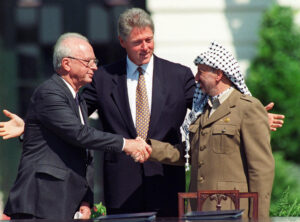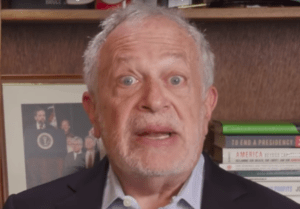Women Dominate 2017 National Book Awards
Almost all the winners of the prestigious literary prize, which honors the year's best in fiction, nonfiction, poetry and young adult literature, are women. Author Annie Proulx speaking at the 68th Annual National Book Awards. (Screen shot via Facebook)
Author Annie Proulx speaking at the 68th Annual National Book Awards. (Screen shot via Facebook)
This year’s National Book Award ceremony did not stray from 2017’s political context, as the choice of winning books and the subsequent acceptance speeches zeroed in on the complex, dismal state of global affairs today.
There was a bright spot amid the doom and gloom, however: Most of the winners at the 68th annual awards ceremony, which took place in New York City Wednesday night, were women. Jesmyn Ward took home the fiction prize for her novel “Sing, Unburied, Sing”; Masha Gessen won for nonfiction with “The Future Is History: How Totalitarianism Reclaimed Russia”; Robin Benway’s “Far from the Tree” won for best young adult literature; and acclaimed author Annie Proulx was awarded the Medal for Distinguished Contribution to American Letters, essentially a lifetime achievement award.
Host Cynthia Nixon labeled literature an important weapon in “an increasingly hostile world,” and each of the authors touched upon the political climate in their speeches, either indirectly or directly.
“I never thought a Russia book could actually be longlisted or shortlisted for the National Book Award,” Gessen told the audience when accepting her award. “But of course things have, um, changed.”
Ward, meanwhile, touched upon the class and racial discrimination she often faced in trying to create a novel about poor, black Southerners. “Throughout my career, when I have been rejected, there was sometimes subtext, and it was this: People will not read your work because these are not universal stories,” she said. “[But] you looked at my poor, my black, my Southern children, women and men — and you saw yourself. You saw your grief, your love, your losses, your regrets, your joy, your hope.”
Proulx, however, went straight to the heart of things in her acceptance speech, telling the crowd:
We don’t live in the best of all possible worlds. This is a Kafkaesque time. The television sparkles with images of despicable political louts and sexual harassment reports. We cannot look away from the pictures of furious elements, hurricanes and fires, from the repetitive crowd murders by gunmen burning with rage. We are made more anxious by flickering threats of nuclear war. We observe social media’s manipulation of a credulous population, a population dividing into bitter tribal cultures. We are living through a massive shift from representative democracy to something called viral direct democracy, now cascading over us in a garbage-laden tsunami of raw data. Everything is situational, seesawing between gut-response “likes” or vicious confrontations. For some this is a heady time of brilliant technological innovation that is bringing us into an exciting new world. For others it is the opening of a savagely difficult book without a happy ending.
To me the most distressing circumstance of the new order is the accelerating destruction of the natural world and the dreadful belief that only the human species has the inalienable right to life and God-given permission to take anything it wants from nature, whether mountaintops, wetlands or oil. The ferocious business of stripping the earth of its flora and fauna, of drowning the land in pesticides again may have brought us to a place where no technology can save us. I personally have found an amelioration in becoming involved in citizen science projects. This is something everyone can do. Every state has marvelous projects of all kinds, from working with fish, with plants, with landscapes, with shore erosions, with water situations.
Her speech concluded on a hopeful note, as she argued that the “happy ending still beckons” and that most people “still have tender feelings for such outmoded notions as truth, respect for others, personal honor, justice, equitable sharing.”
Ironically, former President Bill Clinton, who is back in the spotlight due to the recent focus on sexual harassment in politics, was a featured speaker at the awards ceremony. Taking the stage to present an award to Scholastic CEO and Chairman Richard Robinson, Clinton told the crowd that the “creative cooperation” exemplified by the literary process is “the way America and the world should work.”
“You don’t have to be in elected office to do the public good. Private citizens can, and they should,” he concluded. “And in a time of great division, they must.”
See the full list of nominees and winners here, and watch the full ceremony in the video below:
Your support matters…Independent journalism is under threat and overshadowed by heavily funded mainstream media.
You can help level the playing field. Become a member.
Your tax-deductible contribution keeps us digging beneath the headlines to give you thought-provoking, investigative reporting and analysis that unearths what's really happening- without compromise.
Give today to support our courageous, independent journalists.





You need to be a supporter to comment.
There are currently no responses to this article.
Be the first to respond.